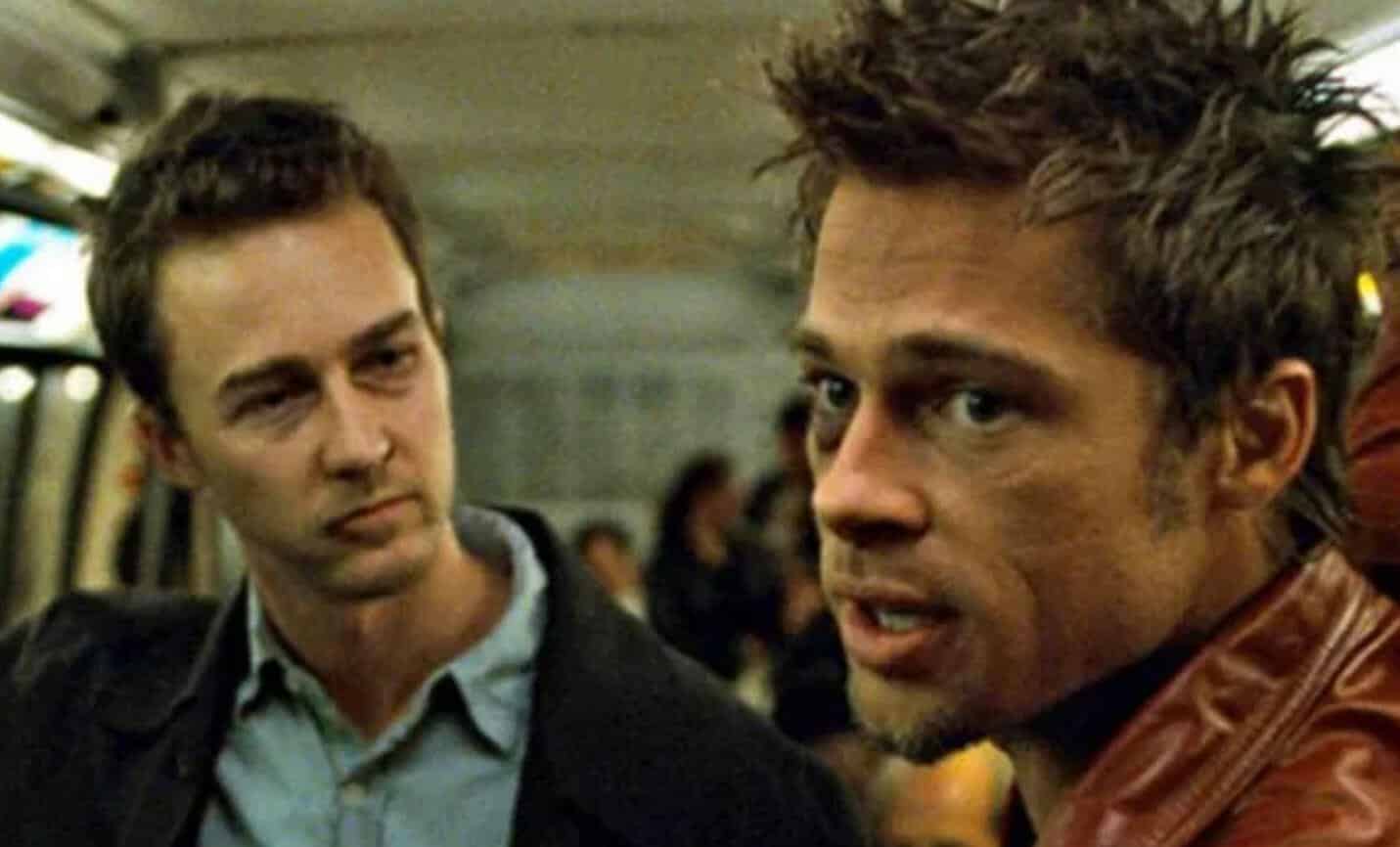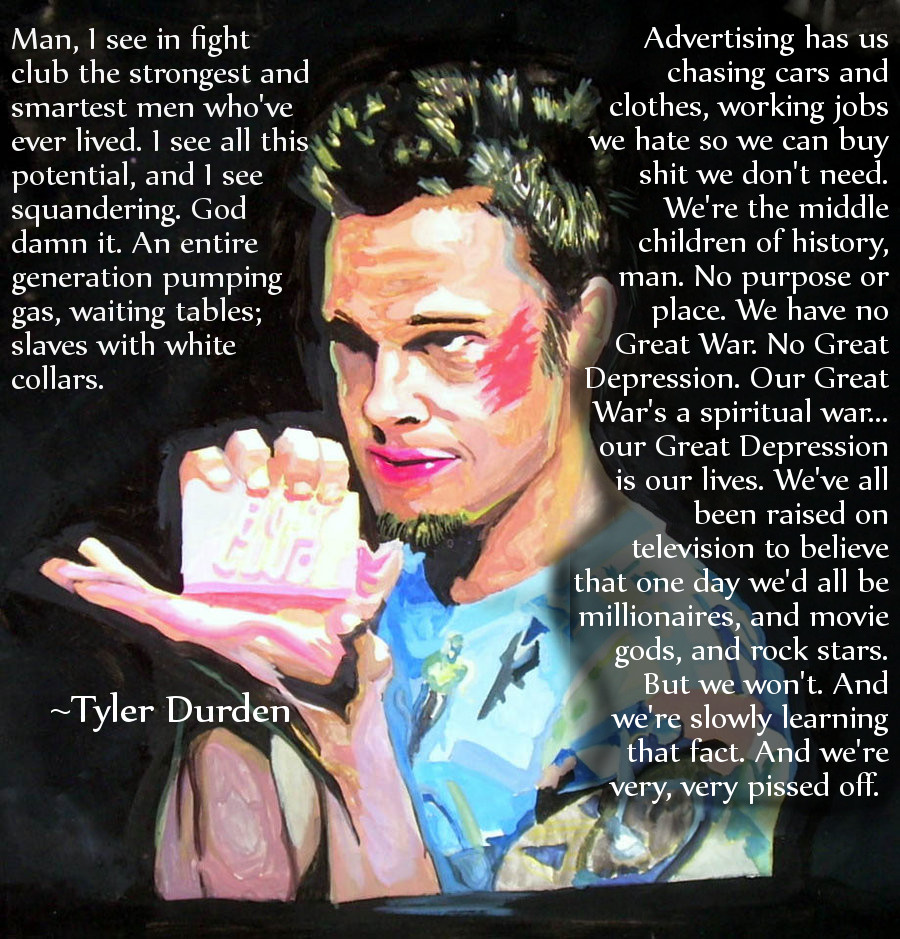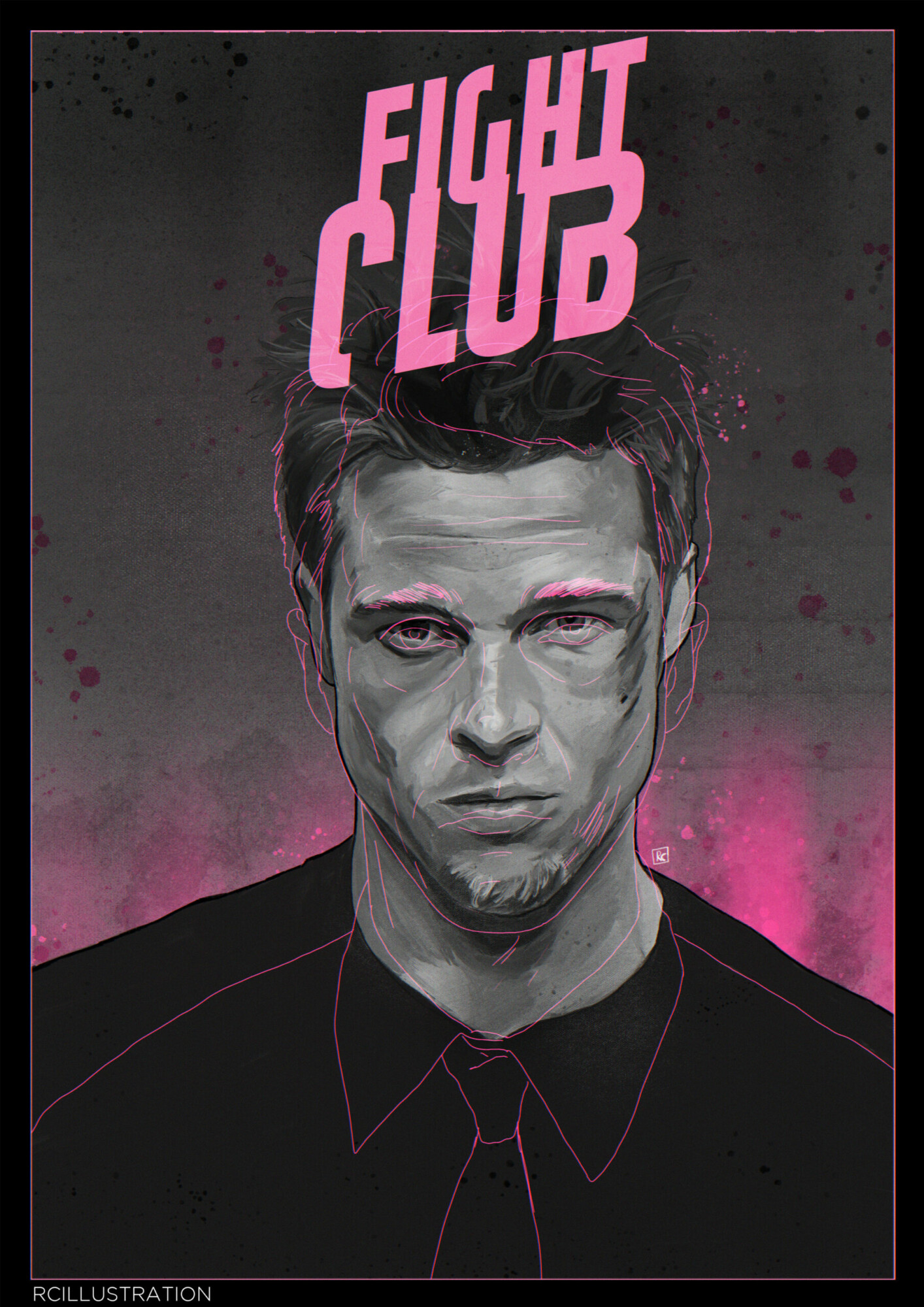The 1999 film Fight Club, directed by David Fincher, has become a cultural phenomenon. Its exploration of identity, consumerism, and mental health resonates with audiences worldwide. At the heart of this iconic movie is the enigmatic character of Tyler Durden, who captivates viewers with his charisma, rebellion, and psychological complexity. But who exactly is the main character in Fight Club? The answer lies in the dual identity of the Narrator and Tyler Durden.
The Dual Identity: The Narrator and Tyler Durden
The main character of Fight Club is an unnamed man known as the Narrator. He is portrayed by Edward Norton in the film and serves as the protagonist of Chuck Palahniuk’s 1996 novel of the same name. The Narrator is a middle-class office worker suffering from insomnia and depression. His life is characterized by routine, dissatisfaction, and a sense of emptiness. To cope, he attends support groups for people with terminal illnesses, even though he is not sick himself. This act provides him with a sense of catharsis and temporary relief from his insomnia.
It is during one of these support group meetings that the Narrator meets Marla Singer (played by Helena Bonham Carter), another person faking her illness. Their interactions spark a connection, but it is when the Narrator encounters Tyler Durden (played by Brad Pitt) that his life takes a dramatic turn.
Tyler Durden is introduced as a charismatic and mysterious figure. He is the antithesis of the Narrator—bold, reckless, and unapologetically alive. Tyler challenges the Narrator to confront his fears and embrace a more authentic existence. Together, they form Fight Club, a secret society where men engage in bare-knuckle brawls as a way to reclaim their masculinity and break free from the constraints of modern life.
However, as the story unfolds, it becomes clear that Tyler is not a separate individual but rather a manifestation of the Narrator’s own psyche. Tyler represents the part of the Narrator that craves freedom, danger, and disruption. This revelation is a pivotal moment in the narrative, as it forces the Narrator to confront the reality that he has created Tyler as a means of escaping his own disillusionment with the world.
The Psychological Complexity of Tyler Durden
Tyler Durden is more than just a rebellious figure; he is a complex character whose actions and beliefs reflect deeper psychological themes. His philosophy is rooted in a rejection of consumer culture and the superficiality of modern life. He famously states, “The things you own end up owning you,” a line that encapsulates his disdain for materialism and the false sense of security it provides.
Tyler’s influence on the Narrator is profound. He encourages the Narrator to question societal norms and to seek a more meaningful existence. However, Tyler’s methods are extreme, and his ideology begins to spiral out of control. He forms Project Mayhem, a radical movement aimed at dismantling the structures of consumerism and capitalism. This shift from self-discovery to ideological extremism is a key element of the story, highlighting the dangers of unchecked rebellion.
As the Narrator becomes increasingly entangled in Tyler’s plans, he realizes that Tyler is not just a friend but a dangerous force that threatens to consume his life. The tension between the two characters reaches its climax when the Narrator must confront the reality that he and Tyler are one and the same. This revelation is both a personal and existential crisis, forcing the Narrator to grapple with the consequences of his own actions.
The Cultural Impact of Tyler Durden
Tyler Durden has become an icon of rebellion and anti-establishment sentiment. His character has inspired countless fans and has been referenced across various forms of media. From tattoos to pop culture parodies, Tyler’s legacy continues to resonate with audiences.
However, his popularity has also led to misinterpretations. Some fans have idolized Tyler’s chaos without fully understanding the story’s underlying warnings. It is important to recognize that Tyler was never meant to be a hero but rather a cautionary figure. His actions serve as a reminder of the dangers of losing oneself in the pursuit of freedom and authenticity.
In addition to his cultural impact, Tyler Durden has also influenced the broader conversation around mental health. His character is a case study in dissociative identity disorder, highlighting the complexities of the human psyche. The relationship between the Narrator and Tyler reflects the internal struggles we all face, making Fight Club a thought-provoking and emotionally resonant work.
Conclusion
The main character in Fight Club is the unnamed Narrator, who is both the protagonist and the antagonist of the story. Through his relationship with Tyler Durden, the Narrator explores the themes of identity, rebellion, and the search for meaning. Tyler, as a manifestation of the Narrator’s own psyche, represents the part of him that craves freedom and authenticity.
The character of Tyler Durden is a masterfully crafted paradox—liberator and manipulator, savior and saboteur. His story is a cautionary tale disguised as a call to action, challenging audiences to look deeper into the world around them. Whether you are a writer, creator, or simply someone who has ever questioned the path laid out for you, Tyler Durden offers a powerful reminder of the importance of self-awareness and the dangers of losing touch with reality.














More Stories
US Trending News: 50s Hairstyles: Classic Styles That Still Trend Today
67 Emote Clash Royale Emote: Complete List and Guide
US Trending News: 76ers vs Charlotte Hornets Match Player Stats: Key Performances and Game Highlights